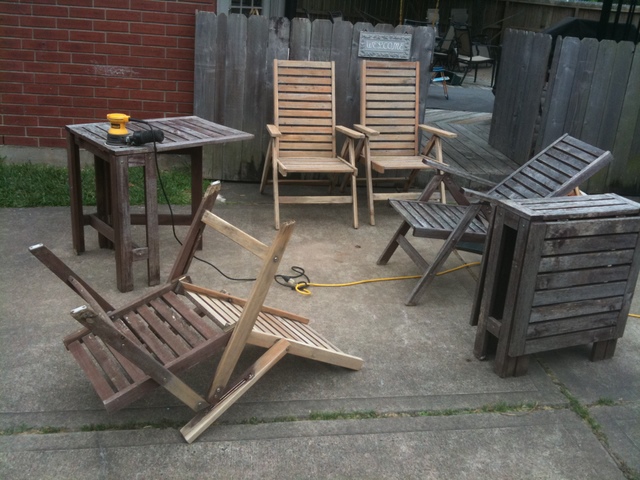Perfect
If there was one thing you could (magically, effortlessly) change about yourself, what would it be?
Play along: come up with one thing. Perhaps it’s…
- developing virtuous habits (and eliminating unhealthy ones)
- addressing some physical characteristic (in the realm of body image or ability)
- acquiring a desired talent
Sit with your answer. What does it tell you about yourself?
- Is it just for fun?
- Does it have to do with something you struggle with?
- How does it relate to your personal goals? Hopes? Dreams?
- What does it tell you about where you are on the spectrum between self-love and self-loathing?
In the lifelong journey of growth and change, there is usually some thing or another that we are working on improving. This is good. However, there is a legitimate concern for our spiritual well-being insomuch as how we treat ourselves in the process.
You are a child of God, created in God’s image and likeness.
- When it comes to the things about yourself that you want to change, do you honor the image of God within? Do you treat yourself with the love and respect that the image of God deserves?
Healthy self-love appreciates the goodness that is. It is from a place of love, not hate, that we are called to conversion – or metanoia.
In the reflection “Just Paint Over It,” I referenced the Greek word metanoia while discussing the transforming process of forgiveness. Metanoia [pronounced meta-noy-ah] translates as “a change of heart.” Meaning a conversion where the person turns away from what is destructive, hurtful, hateful, and instead turns towards God.
Too often, however, we can be overly critical of ourselves in a way which is neither helpful nor loving. There is a fine line between goals that motivate and the expectation of nothing less than perfection that can shut a person down.
The need for perfection.
There are two times that the word “perfect” appears in the gospels, both in the Gospel According to Matthew. The first is in Matthew 5:48, which is the part of the Sermon on the Mount in which Jesus discusses Love of Enemies.

The Mount of Beatitudes and The Sea of Galilee
The second appears in Matthew 19:21 within the story of The Rich Young Man.
If you wish to be perfect…
In reality, there is always room for improvement. If we think we are all done with the personal/spiritual growth thing (as if to say: “I have arrived”), we are reminded that our work is never complete.It is then, that Jesus will say to us:
If you wish to be perfect…
It’s the all-or-nothing extremes that are useless. Unhelpful. Paralyzing. In no way does Jesus insinuate that this rigid interpretation of perfection is what we are to aim for.
Growth—change—is a process. Metanoia is a “turning” away from something (sinful) and towards God (who is wholeness, life, and truth).
Think about the self-improvement / growth things that you are working on in your life. Do you treat yourself with love in the process of turning? Or do you become overly critical and hateful about perceived failures? Because that “hateful” thing is not what Jesus would do.
To move beyond my own struggle with perfectionism, I found it helpful to redefine “perfect” as functioning at my best, right now. For me that implies being my best and doing my best in the present moment, while looking to take the next step to become better.
The “next step” is an important concept in overcoming paralyzing perfectionism, because it recognizes the space between the “reality of now” and the “ideal” or “goal.” And in order for it to function, the “next step” should be realistic. Small. Doable.
And then celebrate the success. And build upon it. Because that is perfect.



 When I returned to my classroom after taking a week off to get my head together, I told my students that I was “going through a difficult time,” which was an understatement, but it was all that I could muster. It was incredibly difficult to be teaching about the faith when I was so very angry, confused, hurt, and broken in my own relationship with God.
When I returned to my classroom after taking a week off to get my head together, I told my students that I was “going through a difficult time,” which was an understatement, but it was all that I could muster. It was incredibly difficult to be teaching about the faith when I was so very angry, confused, hurt, and broken in my own relationship with God. When it was evening the owner of the vineyard said to his foreman, ‘Summon the laborers and give them their pay, beginning with the last and ending with the first.’ When those who had started about five o’clock came, each received the usual daily wage. So when the first came, they thought that they would receive more, but each of them also got the usual wage. And on receiving it they grumbled against the landowner, saying, ‘These last ones worked only one hour, and you have made them equal to us, who bore the day’s burden and the heat.’ He said to one of them in reply, ‘My friend, I am not cheating you. Did you not agree with me for the usual daily wage? Take what is yours and go. What if I wish to give this last one the same as you? Or am I not free to do as I wish with my own money? Are you envious because I am generous?’ Thus, the last will be first, and the first will be last.”
When it was evening the owner of the vineyard said to his foreman, ‘Summon the laborers and give them their pay, beginning with the last and ending with the first.’ When those who had started about five o’clock came, each received the usual daily wage. So when the first came, they thought that they would receive more, but each of them also got the usual wage. And on receiving it they grumbled against the landowner, saying, ‘These last ones worked only one hour, and you have made them equal to us, who bore the day’s burden and the heat.’ He said to one of them in reply, ‘My friend, I am not cheating you. Did you not agree with me for the usual daily wage? Take what is yours and go. What if I wish to give this last one the same as you? Or am I not free to do as I wish with my own money? Are you envious because I am generous?’ Thus, the last will be first, and the first will be last.”









